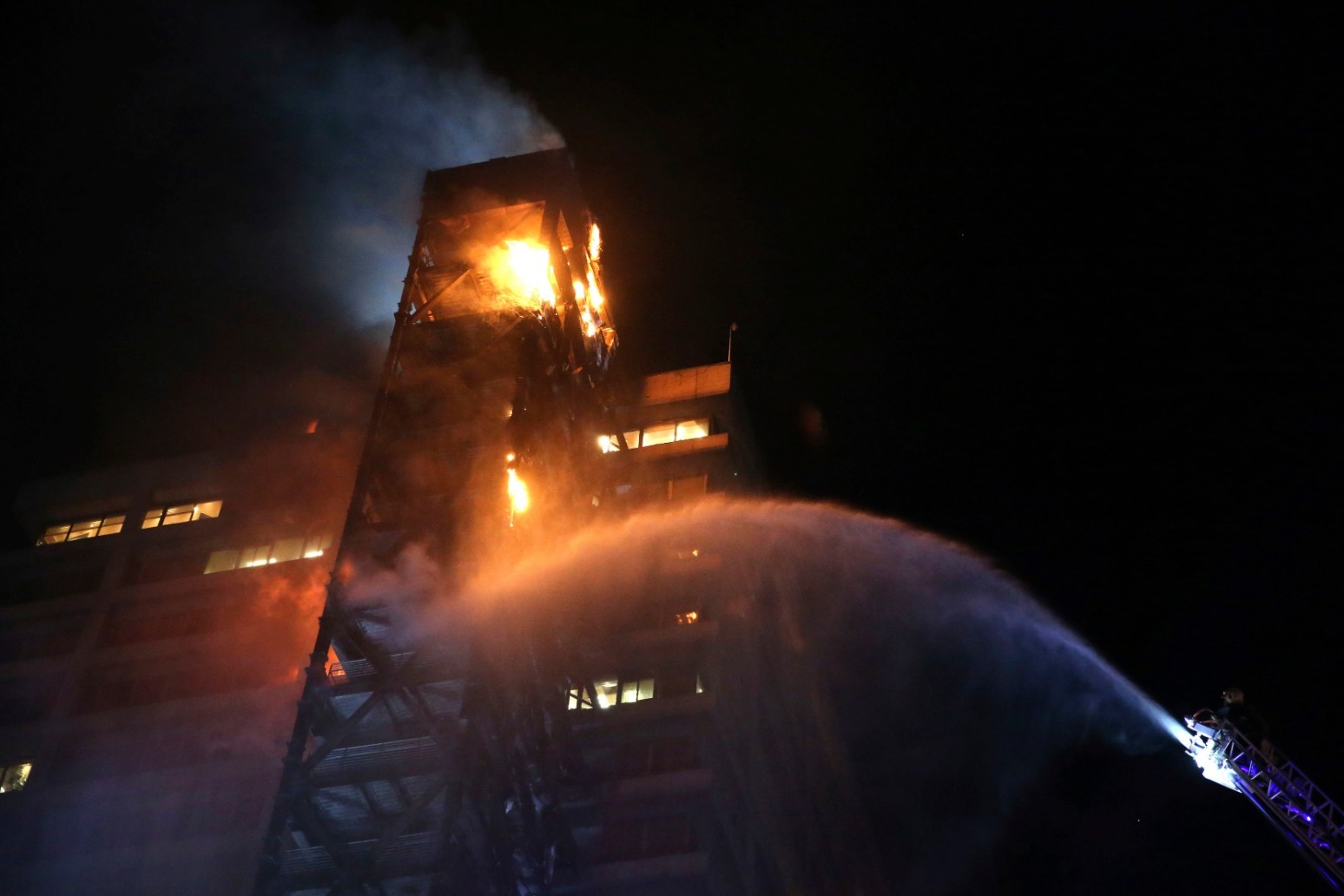
SUBWAY SERVICES IN CHILE'S CAPITAL SUSPENDED AS PROTEST GROWS
Subway services in Chile's capital were suspended trapping hundreds of thousands of commuters on their way home from work
It's after high school students flooded subway stations as part of protests against a fare hike.
Activists jumped turnstiles, dodged fares and vandalised stations in Santiago as part of demonstrations which quickly spread throughout Santiago.
By nightfall, students had set up barricades and started fires at the entrances to subway stations.
Television images showed students and others attacking police vehicles, throwing stones and burning at least one bus, along with scenes of destruction and shattered glass inside various Metro stations.
Police who had been trying to break up the protests with tear gas withdrew from some subway stations.
As midnight passed, Chilean president Sebastian Pinera announced a state of emergency in affected areas, allowing authorities to restrict people's rights to assembly and movement.
The move was aimed at guaranteeing "the security of residents, protecting goods and the rights of each one of our compatriots who have seen complications from the actions of true criminals", Mr Pinera said in a speech from the government palace.
Transportation minister Gloria Hutt, who earlier rejected lowering fares, said: "It's possible that during the next week the functioning (of the subway system) returns in a gradual fashion."
The government filed a complaint under the state security law against people who damage the subway system or prevent its normal operation, according to interior minister Andres Chadwick. The law carries prison sentences of three to five years for offenders.
The protest by students began on Monday when hundreds of young people mobbed several stations in Santiago, jumping over or dipping under turnstiles to protest a 4% increase in subway fares from about one dollar to one dollar and 16 cents.
Chile does not produce its own oil and must import its fuel, leading to high prices for petrol, electricity and elevated public transportation costs.
By the end of the week, the protests had turned violent with students breaking gates, shattering glass and throwing debris onto the electrified rails. A train driver was injured by broken glass.
The protests have divided Santiago residents between those who feel the protests are justified and those furious at the long commuting delays.
"It's unacceptable that because of schoolchildren we can't return to our homes," said bank worker Daniel Fuentealba.
Eric Campos, leader of the subway workers' union, reported that at least 16 employees had been injured and called for the closure of the entire subway system.
Faced with the protests and mass fare evasion, the Metro closed three of its six lines on Friday afternoon before shutting them all at nightfall.
The National Co-ordinator of Secondary Students, one of two groups representing high school students, called for the protest to continue.
Metro officials say the fare price was raised because of a devaluation of the currency, rising fuel costs and the need for maintenance.
Published: by Radio NewsHub